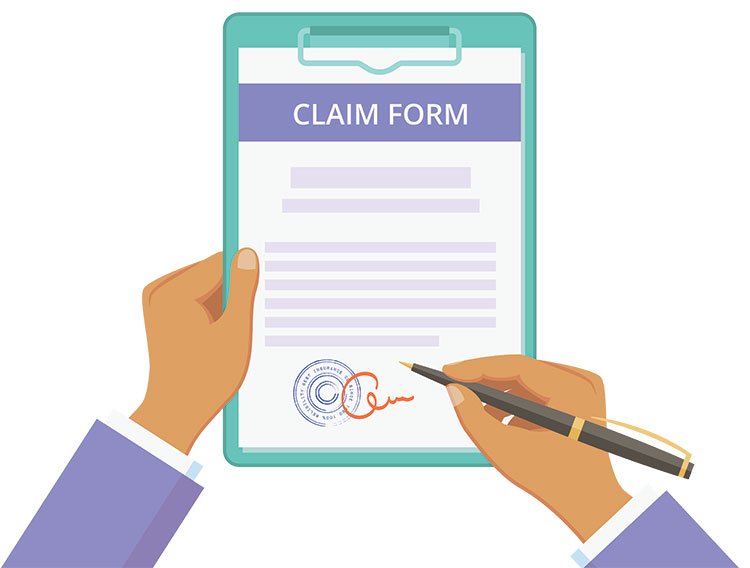As a successful telecoms company, you know the importance of protecting your client list: competition is around every corner and you can’t let standards slip.
From offering impeccable service to giving astute advice, every element of how you treat your customer needs to be considered if you want them to stick with you.
The bigger your business grows, the bigger your challenge.
Allowing clients to pay by Direct Debit will help here. Alongside encouraging brand loyalty, it will protect them against payment errors and fraud thanks to its unique set of safeguards.
With Direct Debit in place, clients can pay you with confidence.
What is the Direct Debit Indemnity?
 The Direct Debit Guarantee, or Direct Debit Indemnity, is a set of measures designed to protect customers.
The Direct Debit Guarantee, or Direct Debit Indemnity, is a set of measures designed to protect customers.
It shields the people who complete the 4.2 billion Direct Debit transactions made in the UK each year from error and fraud. It’s so effective that Direct Debit accounted for just a tiny fraction of the £768.8m worth of financial fraud that took place in 2016.
Its security is unrivalled compared to other forms of payment such as debit and credit cards which made up £618m of this fraud figure and cheques which accounted for £13.7m.
Put simply, Direct Debit is the safest payment method in the UK.
The Direct Debit Guarantee wording is as follows:
- The Guarantee is offered by all banks and building societies that accept instructions to pay Direct Debits.
- If there are any changes to the amount, date or frequency of your Direct Debit the organisation will notify you (normally 10 working days) in advance of your account being debited or as otherwise agreed. If you request the organisation to collect a payment, confirmation of the amount and date will be given to you at the time of the request.
- If an error is made in the payment of your Direct Debit, by the organisation or your bank or building society, you are entitled to a full and immediate refund of the amount paid from your bank or building society.
- If you receive a refund you are not entitled to, you must pay it back when the organisation asks you to.
- You can cancel a Direct Debit at any time by simply contacting your bank or building society. Written confirmation may be required. Please also notify the organisation.
To further reassure your customers, all organisations using the Direct Debit scheme, including bureaux such as FastPay, go through a careful vetting process before they’re authorised. They work carefully within the boundaries of the scheme and the Guarantee’s guidelines.
They’re also closely scrutinised by the banking industry, and the efficiency and security of Direct Debit is monitored and protected by your own bank or building society.
The strength of this peerless payment method is further fortified by its ability to integrate with cloud accounting systems. So, alongside the security offered by the comprehensive indemnity process, you can also reassure your customers that their data is safe with you.
The Direct Debit Guarantee in Practice
 When your company partners with a professional Direct Debit bureau, you can trust them to take care of your submissions and reports: any problems such as an unpaid Direct Debit are highly unlikely.
When your company partners with a professional Direct Debit bureau, you can trust them to take care of your submissions and reports: any problems such as an unpaid Direct Debit are highly unlikely.
Even when processing large numbers of Direct Debits, it’s so rare that just 0.2% of payments are subject to a refund, but errors can occasionally occur.
Here we explain what happens if they do and how the Direct Debit Indemnity protects your clients and your reputation in these circumstances.
1. Incorrect Amounts or Dates
Once a Direct Debit Instruction has been set up, either over the phone, online or via a paper mandate, your clients will be clear about all payment details such as the when, how much and how often.
It’s always recommended to check these details carefully to pre-empt any easily preventable errors. And remember, you can change them to better suit your business needs but only if you inform your customers in advance.
If they notice that a payment has been taken which doesn’t match these pre-agreed details, they’re entitled to an immediate refund, known as an indemnity claim, via the Direct Debit Guarantee. They would need to contact their bank to request this and ensure that future payment details are correct.
However, if their relationship with you is strong and they’ve already had a positive experience of your customer service, they could approach you first to query the issue before getting their bank involved.
FastPay will then work with you to resolve the issue as swiftly and efficiently as possible, protecting your reputation and keeping your client on-board. They will continue to pay by Direct Debit and use your services, secure in the knowledge that their problem has been dealt with by the experts.
2. Notifications
 When you need to change the amount, date or frequency of a payment, the scheme states that you must give advanced notice, usually a period of ten days.
When you need to change the amount, date or frequency of a payment, the scheme states that you must give advanced notice, usually a period of ten days.
Issuing these notifications reduces the risk of facing an indemnity claim as clients will have a reasonable length of time before payment is taken to raise any concerns or cancel if they feel it’s necessary.
Failing to do so not only goes against your commitment to participating fairly in the Direct Debit scheme, but also increases the chances of having to deal with an unpaid Direct Debit and a disgruntled customer. This compromises your cashflow, your client relationships and indeed the future of your business.
3. Failed Cancellations
If your client has cancelled a Direct Debit and a further payment has been taken, the Direct Debit Guarantee entitles them to place an indemnity claim.
This scenario can be avoided if cancellation requests are immediately referred on to your bureau who will process the request promptly.
When everyone adheres closely to the guidelines and stays organised, all Direct Debit schemes run smoothly making this situation unusual.
How to Challenge a Direct Debit Indemnity Claim
 In order to make an indemnity claim, your client can request a refund via their bank without informing you. Provided the bank agrees with the validity of their claim, they’ll receive the refund immediately.
In order to make an indemnity claim, your client can request a refund via their bank without informing you. Provided the bank agrees with the validity of their claim, they’ll receive the refund immediately.
There’s no time limit on when they have to make the claim, reinforcing the strength of the Guarantee’s scope to put customers first.
Furthermore, banks generally accept the word of the payer and arrange the refund, then inform your bureau of the transaction via Bacs, using an error code.
You can then liaise with your bacs approved bureau to decide if the claim should be upheld or not.
You can successfully challenge a claim if you can show that the bank has made a mistake such as refunding the wrong client or amount, refunding the same amount more than once, or including an incorrect reference or none at all.
While fraudulent claims must be dealt with through the court system, you can dispute a claim within the Direct Debit scheme if the following grounds apply:
- The client’s bank has made an error informing you of the indemnity claim
- The client’s bank failed to inform you that a Direct Debit had been cancelled and a further payment has been taken. In these cases, it is the bank’s responsibility to refund the additional amount.
- The client disputes ever completing a Direct Debit mandate but you have proof that they did.
Counterclaims must be submitted to your bank within 14 days of an indemnity claim being settled.
Your bureau will work hard to minimise the risk of facing an indemnity claim: it is in their best interests and yours to run your scheme smoothly and securely.
They’ll achieve this by implementing any changes to the payment amounts, dates and frequencies that you’ve requested from your clients. Because you’ll have given them proper advance notice, they will then have time to bring any issues to your attention or cancel the payment if required.
They’ll also offer impressive customer service with easy-to-access advice and support so that if a client does raise concerns, you and your bureau can work together to resolve them before your customer seeks a refund from their bank.
Your bureau will also respond promptly to cancellation requests as part of their professional, efficient service. And they will follow the Direct Debit scheme rules precisely to ensure everyone enjoys its benefits to the full.
If you’re debating whether to give your telecoms clients the option to pay by Direct Debit, you can be reassured that they’ll have unbeatable peace of mind alongside convenience, reliability and flexibility.












